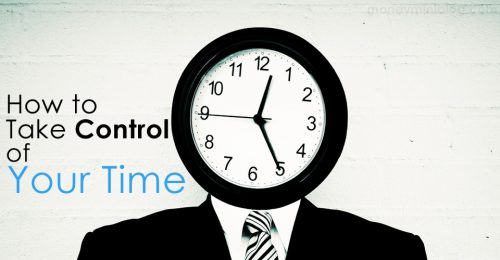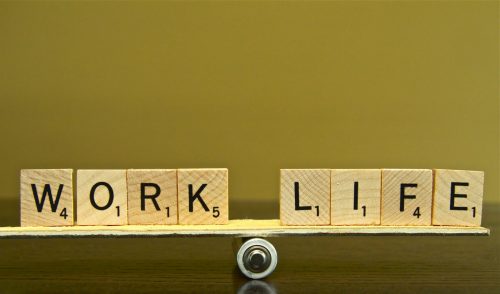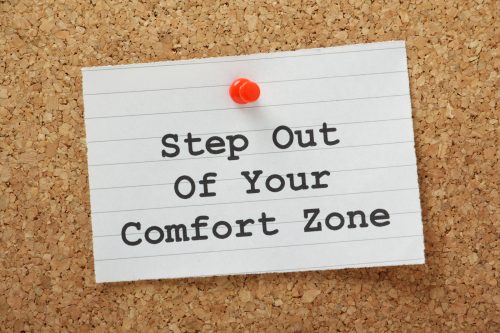Talk therapy or psychotherapy is a vital instrument that conceives success, improves work-life balance, and can benefit a person’s mental health. All employees (and business owners too!) will agree that their work life is important. But so is personal time. People who utilize the therapy’s advantages are smart enough to determine that psychotherapy is something that everybody should take into consideration at least once in their lives. In fact, the majority of successful people embrace and respect the entire process of maintaining a healthy work life balance as if their career life depended on it.
Psychotherapy As An Instrument

Source: flickr.com
People think work-life balance is for the weak, but that’s far from reality.
Ellen Hendriksen, Ph.D. explains that “Seeking help from a psychologist, psychiatrist, or other work-life counselors can be a great way to get through a rough patch, get some perspective, or optimize your life. But not everyone feels comfortable taking time to that step.”
Psychotherapy’s Contribution To Work-Life Balance
When it comes down to discussing internal life baggage, a lot of people grew up sweeping those emotions under the rug – that it’s not appropriate to discuss feelings with other people, especially with strangers.
But times are changing and not talking about something that’s continually bothering you is the single worst mistake that you can do in your life. This amazing equilibrium is an equally important aspect of a healthy professional environment. If you feel overwhelmed, maintaining a balance between unhealthy work habits and life helps less stress and helps prevent burnout in the workplace.
Suppressing emotion and not therapeutically working through your physical, mental, and emotional issues, especially abuse or trauma experienced in the past, may culminate in a wide array of debilitating life problems.
Depression and anxiety are significant players in the world of illnesses and are considered the leading causes of global mental disability, making it a great idea to look for tips to manage work anxiety.
Restoring One’s Life

Source: keesler.af.mil
Therapists or life counseling professionals who specialize in balancing personal and professional life suggest ensuring equal time between working longer hours, relationships and quality time encourage clients to look at their current situation, identify any stressors, and formulate a plan to prioritize their personal activities, hobbies, and vacation time. There should be alternative ways, a flexible workplace and flexible work hours, to avoid a certain same amount of mental stress levels. Remember, the hours you spend at work won’t come back. You have to split your time between work and life to achieve a healthy work life balance. Maintaining a social life while working from home is a good option to keep that balance.
The term work-life balance means having harmony in the different aspects of your life. To what extent do a job and personal priorities interfere with one another? Many employees say it’s become more difficult to balance a job and family, they cited that their top challenge is increased sense of responsibilities at their job which means working long hours. The good news is that many employers have allowed workers flexible hours and some have even encouraged to obtain eight hours remote work. Many managers do a better job of supporting their employees.
Working long hours and harder doesn’t mean achieving more, especially if you have no personal time spent with your friends and family and the people that matter most. Let’s not forget that as our stress levels spike, our productivity plummets.
What is work-life integration? Work-life integration involves blending both personal and professional responsibilities. Technology advancements have given endless opportunities to collaborate and work digitally, and it provides increased flexibility for employees to coordinate their schedules and responsibilities in a more productive way to achieve their home life and office priorities.
Talk Therapy Is A Wonderfully Structured Type Of Psychotherapy Treatment
Psychotherapy is one of the key stakeholders to improve your work-life balance. It is a wonderfully structured type of psychotherapy that addresses not only the major symptoms of specific mental illnesses (like depression) but also the cause of the problem, whether that’s your work hours or a problem with your work-life balance.
“Many people function well with depression in front of others. It’s when they start their day, end their day, or isolate themselves from others that the symptoms are obvious,” according to a statement by Susan Fletcher, Ph.D.
While medications such as antidepressants are essential to managing most of the symptoms, it does not rip out the underlying source. That said, here are more work-life balance benefits that are gained from engaging in psychotherapy.
Benefits Of Psychotherapy
Provides Techniques For Dealing With Unexpected Circumstances
Life is full of endless curveballs that may just hit us in the face any minute; therefore, knowing how to be more productive and how to manage these problems, whether big or small, is an essential skill to live healthy lives and achieve balanced personal and professional lives.
Its Effects On Work-Life Balance Linger Even After The Sessions
Long-lasting outcomes are possible because, in this type of psychotherapy, you not only work through your baggage but also learn and develop helpful tools in dealing with unexpected circumstances in the future. The durability of the program is continuous, making the person more tenacious and mature in dealing with one’s personal life crises.
Lets You Acquire Different Perspectives
Not only on yourself and your situation, but the treatment helps other people’s plights and focus as well. Understanding the people or team surrounding you is essential to bringing down negative assumptions about them, doing a reality check, and seeing the person in an entirely different light and energy. Without the disarray of one’s hunches, recognizing, accepting, and appreciating people’s motivations and healthy job-life balance intentions becomes way easier.
Rewires The Brain To Have Work-Life Balance
The treatment can entirely change one’s control over his or her emotions regarding work and a person’s life balance. Medication can improve part of the brain that’s depressed for example; however, research shows that psychotherapy is more potent in this area. According to evidence, psychotherapy can alter mental activity where self-referential imagery, fear, and command occur.
Replaces Self-Medication
Though self care and self-medication is strangely common, it does not hammer away from the real issue and instead, just masks it. Furthermore, mental illness medications have an addictive effect that may exacerbate the balance of work-life problems. Psychotherapy is keen on getting straight to the point and obviating the necessity to self-medicate.

Source: pixabay.com
Final Thoughts On Work And Life Balance
With the advent of numerous personal tasks in achieving work-life balance, people are starting to consider the advantages of psychotherapy in dealing with mental health problems and a personal struggle to get a better work-life balance. Healthy work isn’t just a high salary. It’s also a balance between all the other aspects of a person’s life.
Though the stigma is slowly fading, there is still a healthier balance that needs to be done in the aspect of promoting psychotherapy as a crucial tool in facing work-life’s daily encounters. One should note that personal free time management is essential for improved personal relationships, well-being, and succeed professionally. Thus, spending time with elf is a must.
Also, keep other things in mind: “Feel free to ask questions in your search for a therapist. Common expectations and questions tend to be about therapeutic style, therapist experience, the average length of treatment, fees for services, insurance participation, and scheduling details.
Many therapists have websites that address many common questions, but make sure to ask any outstanding and balanced work-life questions if you are unclear,” a reminder from Alicia Clark, PsyD.
Frequently Asked Questions About Work-Life Balance
What is a good balance between your job and personal life?
What does work-life balance mean?
How many hours of work a day is ideal?
What are the five steps to getting a good balance?
Why work-life balance is important?
How do you create a good balance?
What are the types of work-life balance?
What causes a poor balance between work and your personal life?
What are the benefits of good integration between your job and your personal life?
Is working 8 hours a day too much?



















